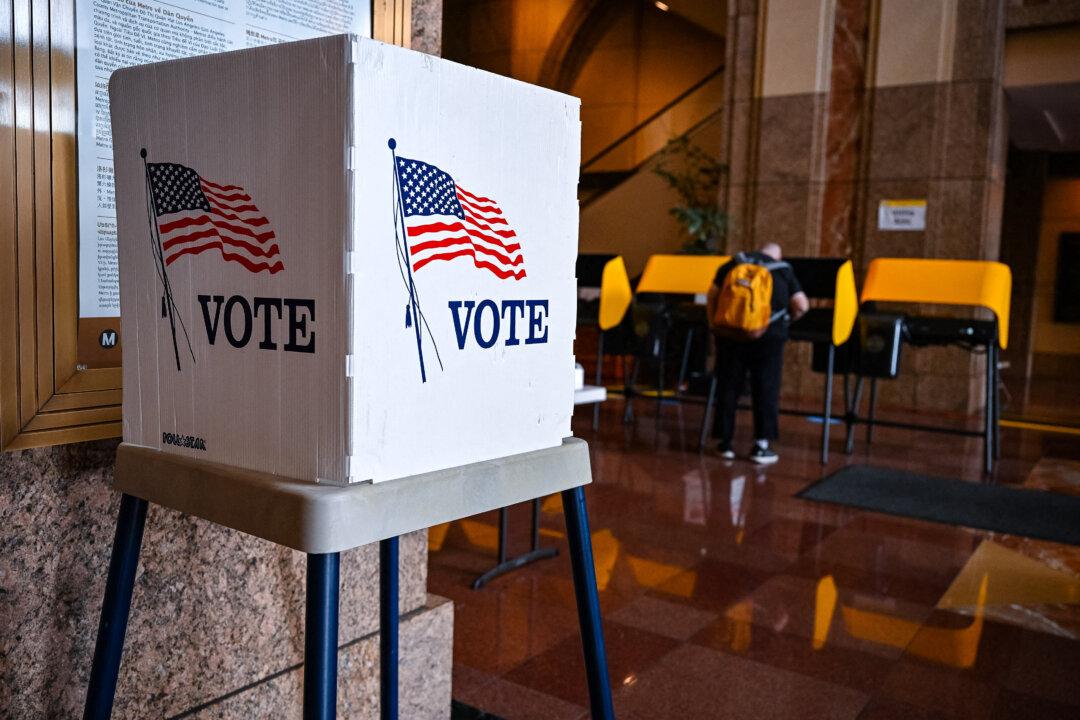California voters have 10 ballot measures to consider while filling out their mail-in ballot or attending polls for the Nov. 5 election, including bond proposals, a minimum wage increase, and a public safety proposal, among other items.
California Voters Will Determine the Fate of 10 Ballot Measures
From public safety to education, health care, minimum wage, and more, voters will decide which propositions should become law.

A voter prepares their ballot at a polling station in a file photo. Robyn Beck/AFP via Getty Images
|Updated:




